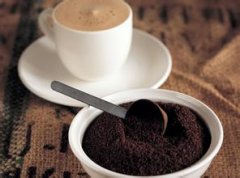A brief introduction to the climate and altitude of Malaba coffee varieties in southern Rwanda

Rwandan coffee is gaining increasing popularity on the international market.
The mission of the Rwandan Coffee Association is to manage and supervise the operation of the Rwandan coffee industry from production to marketing. The recently revised mission focuses on policy formulation and implementation, with greater emphasis on efforts to improve professionalism and marketing in the coffee industry. Since its inception, the Rwandan Coffee Association has done a good job of promoting Rwandan coffee culture and influence.
Maraba coffee is grown in southern Rwanda, about 12 km (7 mi) from Butare and 150 km (93 mi) from the capital, Gigali. The project began in the Malaba area of Butare province, but was succeeded by local government organizations in 2006, and the area is now part of the Huye region of Southern province. Due to its proximity to the Great Rift Valley and the Nunwe Forest Mountains, this zone has many slopes, steep terrain and fertile volcanic soil. Coffee is grown at elevations of 1700 to 2100 meters (5,577 - 6,889 feet), usually on steep hillsides. The zone also receives an average of 115 cm (45 in) of rainfall per year. Most of this comes from the rainy season between March and May, which is also the main coffee harvest season. Temperatures at higher altitudes are slightly lower, averaging about 20°C (68°F), with small seasonal variations.
production process
The peak harvest season for Rwandan coffee is during the main rainy season, from March to the end of May. During harvest season, farmers spend most of their day picking coffee by hand. In the afternoon, farmers carry coffee nuts in traditional baskets woven from banana leaves to washing stations hours away. Artisans hand-pick the best coffee cherries with a deep red hue and return the rest to farmers for sale at low prices in markets outside the Malaba processing zone. The mechanic pays the farmer $0.10 per kilo. Every fortnight the guild deposits the reward into the farmer's bank account
With the improvement and upgrading of Rwandan coffee in all aspects, its quality has also made a qualitative leap. Rwanda's Anomeca Premium Washed Bourbon defeated Jamaica Blue Mountain No. 1 and Sumatra Mandning G1 Special to retain the title in the 2008 COE Competition organized by SCAA. Rwandan coffee has won a place in the coffee world with its excellent quality and won more attention.
Rwanda has been growing coffee since colonial times. Although coffee is the main crop, the quality of coffee produced in Rwanda is not outstanding. The status of coffee in the world is low and few people pay attention to it. Rwanda grows mostly bourbon coffee varieties. Rwanda, known as the "country of thousands of hills", has a high altitude mountain environment, fertile volcanic soil and abundant rainfall, which is conducive to the growth of coffee trees. The advantages of varieties combined with excellent natural conditions should have produced high-quality coffee, but why is the coffee quality not satisfactory? The reason lies in the later processing links. Improper processing will reduce the quality of coffee and sacrifice many good flavors in vain. Harvesting, planting, processing, grading, transportation and other links will directly affect the quality of coffee beans, in which the lack of control in a certain link will become a stumbling block to make good coffee.
Coffee fruits need to be transported to the processing plant as soon as possible after picking, but due to lack of facilities in the country, it is impossible to process the fruits in the first time. The fruits accumulate together after being picked, and lack of ventilation will continue to accelerate mold and rot. The rotten fruits will affect the quality of coffee and appear defective flavor.
Rwanda has made great progress in coffee production and processing in recent years. First, coffee fruit is picked manually; coffee production cooperatives are set up all over the country to provide technical guidance to coffee farmers; coffee farmers send coffee processing stations for cleaning and screening as soon as possible after picking, and select mature and high-quality coffee fruits for processing.
The watershed between the Congo Basin and the Nile River basin runs through Rwanda from north to south, and about 80 per cent of the country is drained from the Nile River, while about 20 per cent draws water from the Ruzizi River and Lake Tanganyika. The longest river in the country is the Nyabarongo River, which originates in the southwest and turns north, east and southeast respectively before flowing into the Ruvwu River and forming the Kagera River, which will flow due north along the eastern border of Tanzania. Both the Niabalongo and Kagera rivers will eventually flow into Lake Victoria. Rwanda has many lakes, the largest of which is Lake Kivu. Located at the base of the Albertine Rift Valley and extending along the western border of Rwanda, the lake is 480 meters deep at its deepest point, making it one of the 20 deepest lakes in the world. Other large lakes include Lake Burera, Lake Ruhondo, Lake Muhazi, Lake Rweru, and Lake Ihema, the largest of a series of lakes on the eastern plains of Akagera National Park. [2]
terrain
Rwanda is mountainous and has the title of "country of thousands of hills". The whole country is situated at high altitudes: the lowest point, the Luziji River, is 950 metres above sea level. The central west is dominated by mountains, part of the Albertine Rift Range, which in turn is part of the Great Rift Valley of East Africa and runs north to south along Rwanda's western border. The highest mountain in the country is located in the volcanic chain of the Virunga Mountains in the northwest, of which Karisin is 4507 meters higher than the volcano and is the highest geographical point in Rwanda. The mountains in the western part of the country, located in the Albertine Rift Mountain Forest Ecological Zone, range from 1500 to 2500 metres above sea level. The central part of Rwanda is dominated by rolling hills, while the eastern border area is composed of tropical grasslands, plains and swamps. The slightly highland beans that have always been favored and the Grand Q competition champion manor in 2005 are all single-handedly organized by this private company. This batch of SICAF printed on it is also operated by NKG. Rwanda's coffee grading system is different from other African countries. Besides manual selection, cup test is also needed to evaluate the grade difference, while Lu's grade is only A. B, C three different, this batch of 100% Bourbon species of Mount Kumgang, according to the cup test purchasing experience, he will be another wave of coffee lovers favorite, thick Body, fruity acid characteristics, complex variability in the mouth.
The following is the cup forecast and basic information:
Dry aromas: dark chocolate, hazelnut (nutty), fruity persistent, peach
Wet fragrance: woody, creamy, nutty, pepper, mango sweet
Sip: Melon-like sweetness with coating properties... The acidity is bright and obvious, with a slight astringency in the front part. Creamy sticky body, black tea-like aroma, throat lingering, solid and Kivu Lake (Lake Kivu) is the highest lake in Central Africa, Rwanda is still a backward country, but under the President's Vision 2012 and 2020 "strategy, it is expected to have a beautiful vision. The word OCIR can be clearly seen on this batch of packaging. It is an organization of the Rwandan government responsible for agricultural related industries, including the promotion of fine coffee. It belongs to the Rwandan Ministry of Commerce. Beautiful view over Kivu Volcanic Lake
Another noteworthy thing on the package is that there are a series of words related to the United States. This is the United States Assistance Program (USAID). Because of this plan, Rwanda's fine road has also gone smoothly. OCIR has referred to many successful ways in order to improve the quality of exports. Among them, the mechanism of establishing cooperatives is indispensable to the road to fine coffee. Here, farmers are provided with an environment for education, large-scale water treatment plants have been built, Rwanda coffee in its washed Arabica bean form is of absolute quality. As far as Africa is concerned, its coffee industry stands out because the country thrives mainly on producing the best possible coffee beans.
Important Notice :
前街咖啡 FrontStreet Coffee has moved to new addredd:
FrontStreet Coffee Address: 315,Donghua East Road,GuangZhou
Tel:020 38364473
- Prev

A brief introduction to the Market Price of soft and fragrant Rwandan Coffee
Bourbon coffee grown in Rwanda is amazing for its sweet fruit, full-bodied, unrestrained and lingering aftertaste. This coffee has a delicious, citrus sweetness and a deep chocolate color. Rwanda bourbon is known as the Bourbon that captures the whole African charm and condenses it in a cup.
- Next

A brief introduction to the treatment method of grinding degree and baking degree of Ludawang boutique coffee
Rwanda Coffee Market: Rwanda Coffee is absolutely high quality in the form of washed Arabica beans. As far as Africa is concerned, its coffee industry is remarkable because the country thrives mainly by producing the best possible coffee beans. Coffee from Rwanda is becoming more and more popular in the international market. The mission of the Rwandan Coffee Association is to manage and supervise the coffee production in Rwanda.
Related
- Detailed explanation of Jadeite planting Land in Panamanian Jadeite Manor introduction to the grading system of Jadeite competitive bidding, Red bid, Green bid and Rose Summer
- Story of Coffee planting in Brenka region of Costa Rica Stonehenge Manor anaerobic heavy honey treatment of flavor mouth
- What's on the barrel of Blue Mountain Coffee beans?
- Can American coffee also pull flowers? How to use hot American style to pull out a good-looking pattern?
- Can you make a cold extract with coffee beans? What is the right proportion for cold-extracted coffee formula?
- Indonesian PWN Gold Mandrine Coffee Origin Features Flavor How to Chong? Mandolin coffee is American.
- A brief introduction to the flavor characteristics of Brazilian yellow bourbon coffee beans
- What is the effect of different water quality on the flavor of cold-extracted coffee? What kind of water is best for brewing coffee?
- Why do you think of Rose Summer whenever you mention Panamanian coffee?
- Introduction to the characteristics of authentic blue mountain coffee bean producing areas? What is the CIB Coffee Authority in Jamaica?

